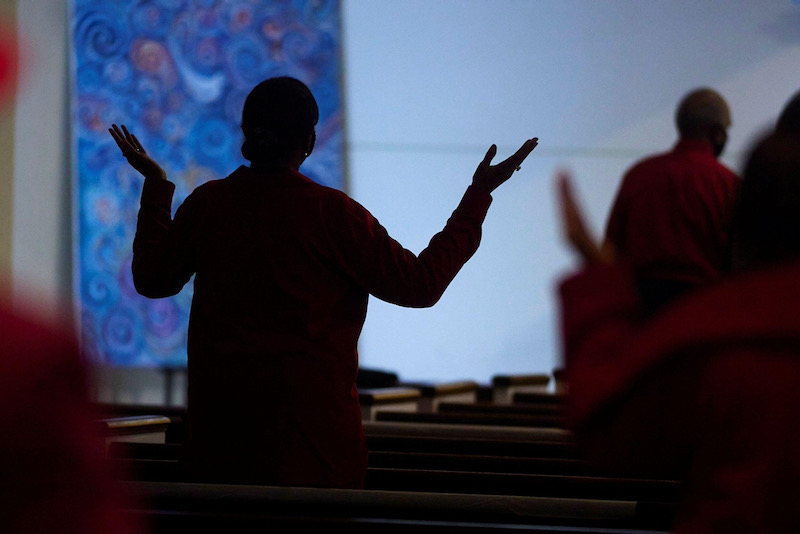One Sunday afternoon, a few weeks ago, I chanced upon a programme on Premier Christian Radio called The Leadership Show. It seems an obvious idea – a weekly feature interviewing Christian leaders, ordained or otherwise, about their experience of leadership and its challenges – and it was a good listen. But there is no trace of Roman Catholic voices on the list of the show’s podcasts. Perhaps we shouldn’t be too surprised, not simply because Premier draws its audience mainly from Evangelical Churches.
The particular episode I chanced upon was about the capacity of a particular type of personality profile both to develop individuals’ awareness of their personal skill-sets and to enable effective working of ministry teams. A practitioner explained how the process combines questionnaires, computer analysis and personal coaching to good effect. An Anglican Archdeacon explained how he had used the tool to get colleagues to work better together in his “patch”. Listeners learned that personality profiling is now used in selecting and training up people for leadership roles in the CofE.
In most walks of life, this would be very old news. Appraisal, mentoring, staff-development, skill-training, annual review … these are common currency, a given. But not in the Catholic community. Sometimes it feels as if those two words, Roman Catholic, don’t include the letters HR. Most of those in ordained ministry could probably tell sorry tales of lay colleagues treated shabbily in years gone by. Sadly, some could recount more recent injustices. I dare say that the defenestrations caused by Covid-19 – both the temporary furloughs imposed by lockdown and the permanent redundancies necessitated by a drastic drop in offertory income during the pandemic – will have added a few more bruises to the spirits of those who have served the community professionally, even if dioceses are generally more aware of employment law than once they were.
Even when we look at the experience of clergy, we need to ask some searching questions. The ordained are characterised as office holders in civil law; hence unable to sue their boss – God – for wrongful dismissal. That said, the ordained also have the tremendous privilege of knowing that, so long as they remain in good standing, they will never go hungry, nor want for work, nor risk homelessness.
However, the semi-detached status of the ordained leaves the Church with an accountability deficit, a deficit which flows both ways. Excepting the most egregious wrong-doing, or accusation of sexual misconduct with the vulnerable, Catholic priests are pretty un-sackable. They are also typically unsupervised for long periods, with only loose, informal mechanisms of support or challenge, being left to plough their own furrow. Unfortunately, that furrow can get very deep and very solitary, not through any ill-will but through a mixture of benign neglect and the introversion of the isolated.
The authority pyramid in a Catholic diocese is remarkably flat, given the Catholic Church’s reputation for hierarchical thinking. Bishop, vicar general and dean each have some responsibility for oversight of the clergy on the ground. But all of them have myriad other responsibilities – and, in all probability, little formal training in the practice of mentoring. Typically, there is no regular formal review process to examine pastoral interactions, administrative competence or preaching skills. Indeed, since most clergy now operate as one-man-bands, they are but rarely seen or heard in action by their peers. In my observation, few priests take too much time off by secular standards. Some have scarcely had a break throughout the pandemic. There is typically no written policy on sabbaticals either.
The old model for career development was 20 years of curacy, after which the ordained emerged, fully fledged, as parish priests, even if, by that stage, many had lost most of their plumage. The old clerical joke described the assistant priest as “a mouse training to be a rat”. At best, that system offered a prolonged period of learning on the job under the benign paternal eye of the Parish Priest. At worst, the newly ordained got consigned to a known “curate killer”. Listening to older clergy, curacy seems often to have been something survived, but also spoken of fondly: an experience enjoyed for its camaraderie, much like seminary before it. However, just as most seminaries have shut (Wonersh goes this summer), so most dioceses could probably count the number of assistant priests on the fingers of two hands. Ésprit de corps requires a certain number of bodies.
Now, as the number of available presbyters falls rapidly away, we sometimes seem to be more in the business of plugging gaps than that of filling roles. Perhaps there are sophisticated means being used to select our pastors and to discern who gets appointed to which parish; but, if so, they are well hidden from the public gaze. “Who have we got?” seems to be the operative question as bishops try to ensure that there is Mass in every parish every Sunday. Unlike many other Christian communities, there is no tradition of asking the congregation what their priorities are before appointing a pastor, perhaps for the honest reason that our Bishops have so few choices regarding who to send. But in a synodal Church perhaps a wider polling of the people will be required.
Tomorrow is the Feast of Sts Peter and Paul, and we need to accept that ordained ministry is at a tipping point in this country. We need to hear God’s question to the Prophet, “Whom shall I send?” (Isa 6.8) and be willing to be surprised by the answers that may ensue. Then, having admitted that the old show can’t go on, rather than expecting our existing clergy to be jacks of all trades, ranging over ever-larger chunks of territory, we could enquire into their own charisms and personal callings. Knowing that we can no longer do everything, we could each be freed to do something well.
Fr. Rob Esdaile is parish priest of Our Lady of Lourdes, Thames Ditton.



 Loading ...
Loading ...
What do you think?
You can post as a subscriber user ...
User comments (0)